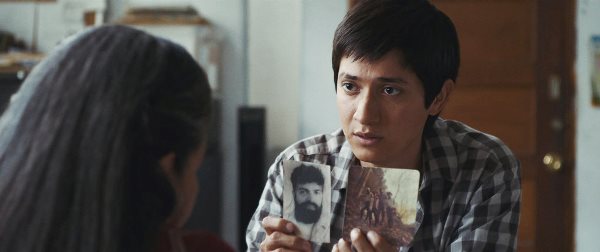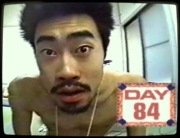
A young man meticulously arranges the bones that comprise a human skeleton. They are among the many pieces in the puzzle of memory and loss for a nation seeking justice for its dead. Ernesto (Armando Espitia), an anthropologist, works for a forensic foundation. His responsibilities include recovering and identify corpses among the victims of Guatemala’s long civil war (1960–1996) that ravished communities.
This dark chapter in the country’s history involved fighting between leftist guerrillas and the military regimes that governed the country. Countless violations against human rights were committed, including the genocide of indigenous population who followed the revolutionary groups or aided them. These events left behind a mark that still demands justice and indemnification on behalf of the mothers, widows, and orphans that lost someone beloved.
Our Mothers is the first feature film by Belgian-Guatemalan filmmaker César Díaz after a substantial career making and editing documentaries. The subject matter benefits from his previous nonfiction experience; the social and historic background of the narrative illustrates well the challenges of reconciliation with Guatemala’s recent past. Though Ernesto didn’t face the horrors of the tyranny directly, he grew up hearing the stories of his mother, Cristina (Emma Dib), and family friends who knew his father, one of many guerrilla leaders who were murdered by military forces. His body was never found.
Ernesto is an idealist, inspired by the memory of his father and constantly craving a moment of closure for when he can give his father a proper burial, just as he has been able to help other families. In a particular new case, an indigenous woman, Nicolasa (Aurelia Caal), asks for his services to recover the remnants of her late husband, who was shot by the army along with other men after sheltering rebels. She shows him a photo of her husband posing alongside the fighters, one of them looking similar to Ernesto’s father. Nicolasa refers to that particular man as the Boss. Now, Ernesto wants to take Nicolasa’s case for personal reasons.
Many of the people related to Ernesto had to endure the excesses of the military governments, and they maintain complex stances that vary from resignation to pragmatism. Especially his mother, who wants to move on from the past and, unlike her female friends, refuses to take part in the testimonies in the trials of former officers for acts of murder and torture.
However, there are those like Nicolasa and the other widows of her community who cannot move forward until they recover and honor their dead. As opposed to other families, they already know the location of the mass grave where their loved ones are buried. It’s on private land, but the owner has forbidden access to them. Ernesto feels powerless and angry, wanting to do for the women. His only temporary solution is to take note of every individual report, even if it takes an entire day. In one sequence featuring the faces of these silent women, you instantly recognize the severity of their pain and the yearning for justice.
Although the first half is as precise and careful as the initial images of Ernesto at his job, Our Mothers later takes a melodramatic turn, focusing thoroughly on Ernesto’s obsession to find his father. To say that Nicolasa’s story line becomes a subplot would be an understatement. It simply vanishes for the rest of the movie and briefly appears during an unsatisfactory coda.
The moments shared between Ernesto and his mother are moving, yet it’s hard to accept him as an absorbing protagonist instead of a narrative device to portray collective memories, as the film suggested initially. If you take into consideration the title, Our Mothers shines better when it takes in account the memories of the women in the film. To a certain degree, it’s a pity they become overshadowed by Ernesto.
For a movie about the necessity of seeking the truth, it intriguingly concludes with an argument in favor of the fictions survivors sometimes create to get on with their live, while many others prefer to forget or sweeten the worst aspects of their collective and personal history.






Leave A Comment